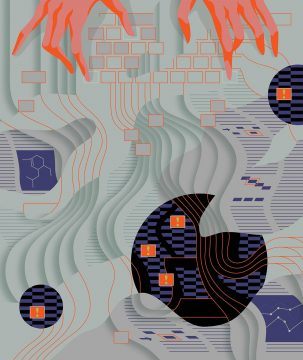Alison Abbott in Nature:
 On 15 June 2017, scientists at a respected biological institute in Germany were thrown into crisis by an alarming announcement. An investigation into the Leibniz Institute on Aging had found that its director, cell biologist Karl Lenhard Rudolph, had published eight papers with data errors, including improperly edited or duplicated parts of images. Investigators didn’t find deliberate fraud, but Rudolph wasn’t able to present original data to explain the problems. The Leibniz Association, which runs the institute in Jena and had commissioned the probe, concluded that Rudolph hadn’t supervised his lab group properly, and so was guilty of “grossly negligent scientific misconduct”. It applied the strictest sanctions it could, barring the institute from applying for research funding from the association while under Rudolph’s leadership for three years. It also ordered the centre to undergo an international review, even though the last one had been completed only a couple of years earlier. Rudolph resigned as director.
On 15 June 2017, scientists at a respected biological institute in Germany were thrown into crisis by an alarming announcement. An investigation into the Leibniz Institute on Aging had found that its director, cell biologist Karl Lenhard Rudolph, had published eight papers with data errors, including improperly edited or duplicated parts of images. Investigators didn’t find deliberate fraud, but Rudolph wasn’t able to present original data to explain the problems. The Leibniz Association, which runs the institute in Jena and had commissioned the probe, concluded that Rudolph hadn’t supervised his lab group properly, and so was guilty of “grossly negligent scientific misconduct”. It applied the strictest sanctions it could, barring the institute from applying for research funding from the association while under Rudolph’s leadership for three years. It also ordered the centre to undergo an international review, even though the last one had been completed only a couple of years earlier. Rudolph resigned as director.
It was the second calamity in a year for the centre, which is also known as the Fritz Lipmann Institute (FLI). Police had raided it in 2016 after allegations that the centre had violated European regulations on animal experiments. The experiments were suspended, and although the FLI was cleared of the allegations, not all of the experiments had been re-authorized when the Rudolph affair broke. “The second crisis sent us into shock — it seemed more personal,” says molecular geneticist Christoph Englert, a group leader at the FLI, which employs 270 scientists. Most researchers at the centre hadn’t even known their director was under investigation. FLI leaders set about restoring the centre’s reputation. They began by phasing in mandatory electronic databases and creating a system of thesis advisory committees to replace single PhD supervisors. The FLI’s head of core facilities, Matthias Görlach, had a less conventional idea. He contacted Enrico Bucci, a molecular biologist who had visited the FLI for some PhD work 18 years earlier, and with whom he’d kept in touch. Bucci was now in the business of checking research papers, Görlach knew; in 2016, he’d founded a science-integrity firm called Resis, based in Samone, Italy. Could the company perhaps help the institute to avoid errors in future?
More here.
